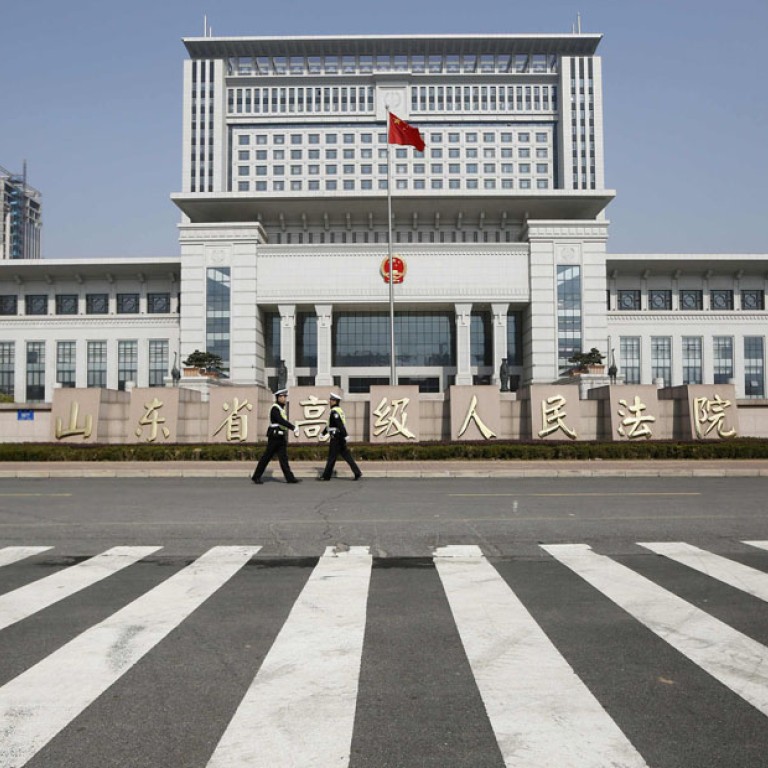
China's Supreme People's Court calls for end to torture in new guidelines
The mainland's top court has issued guidelines that appear to signal its resolve to boost transparency and ensure fair use of judicial authority. The Supreme People's Court said in the guidelines issued yesterday that the practice of using torture to extract evidence must be eliminated and cases must be decided by judges without interference by local governments.
The mainland's top court has issued guidelines that appear to signal its resolve to boost transparency and ensure fair use of judicial authority.
The Supreme People's Court said in the guidelines issued yesterday that the practice of using torture to extract evidence must be eliminated and cases must be decided by judges without interference by local governments.
"Extracting confessions through torture - such as the use of cold, hunger, drying, scorching, fatigue and other illegal methods to obtain confessions from accused - must be weeded out," the document said. It added that courts should work independently, without influence from police and prosecution bodies.
The guidelines also urge local courts to deal with death penalty cases with extra care and stipulate that only "experienced" judges should handle them.
"Evidence must be valued … More attention should be paid to examining and using material evidence," they said.
The guidelines follow a Communist Party pledge to carry out legal reforms - including reducing false charges and freeing courts from government interference - at its Central Committee's recent third plenum. Lu Guanglun , a judge with the top court, said the changes were introduced as some suspects were being presumed guilty, rather than innocent.
"The people's courts should comply with the Constitution and have to practice jurisdiction independently," Lu said.
But Nicholas Bequelin, senior researcher at Human Rights Watch, said the guidelines were unlikely to make any substantial difference, despite indicating a real commitment to improve justice.
"It is encouraging that this effort is carried under the banner of improving human rights protection," Bequelin said. "But the document doesn't introduce remedies if the courts don't act accordingly."
He said the guidelines' influence might be limited, as they applied only to the courts and not to the police or the prosecutors and given the fact that the courts are the weakest institution among the three.
Si Weijiang , a prominent lawyer in Zhejiang , said he was sceptical about whether the guidelines would actually be put into action.
"The judicial system needs a fundamental restructuring to ensure legal independence, not vague and moderate guidelines," Si said. "Nothing can be changed as long as the same group of judicial officials remain in power."
